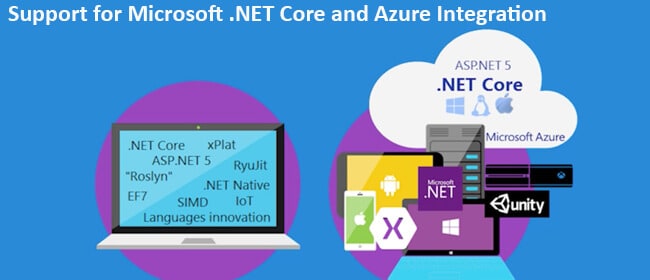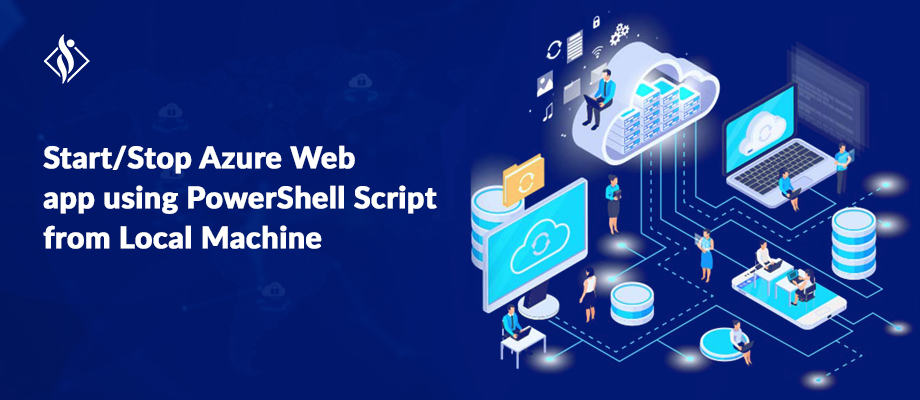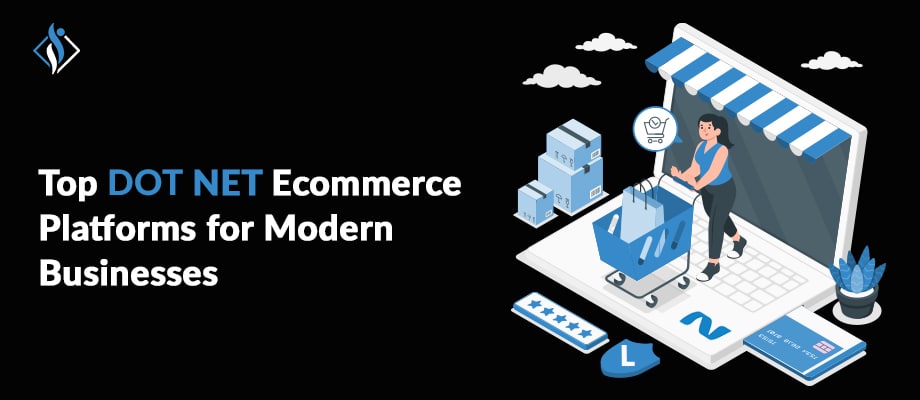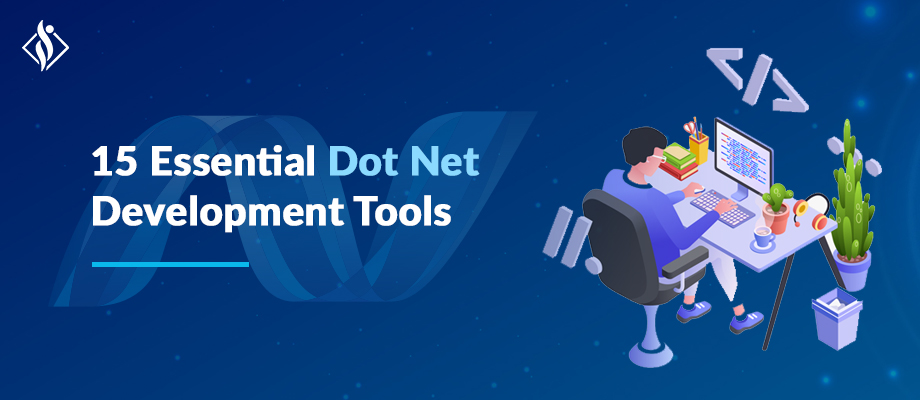Home » .NET Development » Knowing the Support for Microsoft .NET Core and Azure Integration
Knowing the Support for Microsoft .NET Core and Azure Integration

A lot of consumers are working to renew as well as integrate their present monolithic .NET Framework apps with the latest service architectures. As this task keeps up to push ahead, Microsoft is holding a more open ecosystem through .NET Core. Core assist to allow developers to easily develop new dynamic workloads intended to scale on primary public clouds such as Amazon Web Services and Microsoft Azure.
The step of Microsoft creates a chance to assist our clients to accelerate innovation through offering new features as well as integrations for Azure & Microsoft.NET:
- 5 Azure Cloud integrations: Service Bus, Cosmos DB, Virtual Machines meta data, Virtual Network, and Functions (all are now in public beta)
- Support of APM for .NET Core 2.0 on Windows & Linux (now in public beta)
- Planned improvements to our present APM agent for the .NET Framework
APM agent for Microsoft .NET Core 2.0
Consumers let us know that they are motivated for the deployment .NET Core 2.0 apps & services to the Linux systems. They tell they need to cost effectively and quickly scale novel services dynamically on the public clouds. But, this marketplace shift for .NET builds new as well as complex monitoring challenges due to the different distributed environments. We develop our latest features to allow customers to capture metrics, events, & traces for their services and applications independently of where or how developers prefer to run their workloads.
.NET agent improvements presently available
A lot of customers depend on different versions of.NET Framework. In most cases, the requirement for monitoring such apps surfaced as a division of troubleshooting production matters. In other situations, it has been part of the procedure to modernize and baseline monolithic apps for better scaling in the prospect.
The enhancements comprise:
- Support for Couchbase and RabbitMQ
- Support for OWIN0/3.0 for non-IIS web servers, for instance, NGINX and Apache
- Extended data store support comprises IBM DB2, MySQL, MS SQL Server, PostgreSQL, DB2, Redis, and Oracle
- Improvements to reduced overhead and agent performance
No “cowboy deploys” Anymore
Providing support for .NET Core on Linux is intended to assist our customers perfectly understand as well as manage the functions of modern workloads. The Company wanted to help in avoiding situations where developers were performing “cowboy deploys” of applications without consideration for monitoring, & later experiencing technical debt from delicate code. The outcome is a public beta of APM agent for Microsoft .NET Core 2.0 on 64-bit Windows and Linux.
The agent provides a broad range of auto-instrumentation that is out-of-the-box:
- Application models comprise MVC, ASP.NET Core, and Web API
- Visibility for applications hosted on Kestrel (incorporating IIS, NGINX, or Apache, as reverse proxy)
- Support of datastore for Microsoft MySQL, SQL Server, and PostgreSQL
- Instrumentation of asynchronous approaches
- External HTTP calls through HttpClient
- Custom instrumentation with the help of APIs, attributes, and external XML
Evidently, the agent works with APM’s available UI, incorporating support for:
- Cross-app transaction tracing
- Transaction Metrics
- Errors and Error Analytics
- Health Map, Service Maps, and Alerts
Infrastructure integrations through Azure Cloud Services presently in the public beta.
To best support enterprise clients migrating to the Azure Cloud Platform & DevOps teams making use of the latest service offerings, there are also 5 new Azure Service integrations.
- Cosmos DB: Monitor NoSQL multi-model distributed database of it
- Virtual Machine Metadata: Include its attributes to VMs, for example resource groups, region name, VM Size, & availability set.
- Service Bus: Get data from distributed messaging system of it
- Virtual Networks: Get an understanding of how networks, subnets, & routing are configured and also monitor DDoS attacks.
- Functions: Monitor server-less app service of Azure
These latest integrations expand the list of cloud service integrations & are intended to offer customers specific & detailed cloud hosting information as well as insights from Azure inside the Digital Intelligence Platform. Like a constituent of the integration, users have all the power of Digital Intelligence Platform features such as Alerts, NRQL queries, and Dashboards with its data. We decide to add extra Azure Cloud Service integrations depending on the customer demand.
Whether you are a novice in the world of Azure and .NET or an expert in working with the .NET Framework apps, Microsoft’s current moves are several of the boldest we have observed in years. Samarpan Infotech also aims to do their best in offering Azure Cloud Services to the industry.
With over 10 years of experience in Tech industry at Samarpan Infotech with architect system, problem solving and creativity. "Today is the only day. Yesterday is gone".



